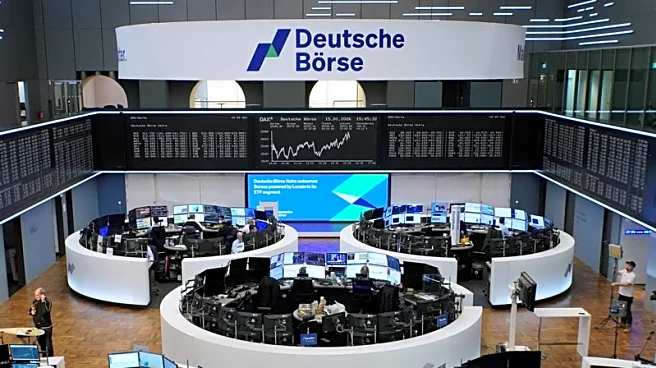What's Happening?
The Boring Company, led by Elon Musk, has been accused of nearly 800 environmental violations related to its tunnel construction project in Las Vegas. Nevada state regulators have issued a cease-and-desist letter, citing violations such as unauthorized digging, releasing untreated water onto streets, and failing to conduct required inspections. The company disputes the allegations, and the Nevada Division of Environmental Protection has reduced potential fines from over $3 million to $242,800. The project, which aims to create a Tesla-powered 'people mover' system, has faced criticism for its environmental impact and regulatory compliance issues.
Why It's Important?
The allegations against The Boring Company highlight the challenges of balancing innovative infrastructure projects with environmental regulations. The situation underscores the importance of adhering to environmental standards, as non-compliance can lead to significant financial penalties and reputational damage. The project, which is privately funded and exempt from federal oversight, raises questions about the adequacy of state-level regulations in ensuring public safety and environmental protection. The outcome of this dispute could influence future infrastructure projects and regulatory practices.
What's Next?
The Boring Company may need to address the regulatory concerns and improve its compliance with environmental standards to continue its Las Vegas project. The dispute resolution process will determine the final penalties and potential adjustments to the project's operations. The company may face increased scrutiny from regulators and the public, prompting changes in its approach to environmental management and project execution.
Beyond the Headlines
The case against The Boring Company reflects broader issues in the tech industry regarding environmental responsibility and regulatory compliance. As companies pursue ambitious projects, the need for sustainable practices and transparent operations becomes increasingly important. The situation highlights the role of state and local governments in regulating private infrastructure projects, emphasizing the importance of effective oversight and enforcement.











